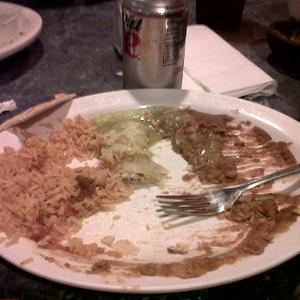An NBC 5 investigation finds that more than 200 Dallas restaurants have not been inspected in at least two years.
The city of Dallas has been scrambling to inspect hundreds of restaurants because of an NBC 5 investigation.
NBC 5 discovered that the city’s inspection system has broken down so badly that some restaurants haven’t been checked in years — not even once.
Wherever you eat, you never know what’s happening in the kitchen. That’s why cities have inspectors — to check for things that could make you sick.
Or at least that’s what we thought they were doing, until NBC 5 started asking questions and digging through city records.
Our investigation turned up a list of 241 restaurants the city of Dallas hasn’t checked since at least 2009.
NBC 5 followed health inspectors to one of those restaurants, a diner that hadn’t been checked in so long that the owner wondered if the city was ever coming back.
The people in charge of city inspections didn’t know so many were so overdue until NBC 5 pointed it out.
Peter Snyder, an expert in food safety with more than 40 years of experience in the restaurant industry, said what happens in Dallas is typical of many big cities he sees around the country (like Houston, which called on Pete’s expertise a few months ago). Cities have cut back on .jpg) inspectors and are not able to keep up with the workload, and restaurant customers can end up paying the price.
inspectors and are not able to keep up with the workload, and restaurant customers can end up paying the price.
"You can have massive foodborne outbreaks — which we’re having these days where somebody forgets to wash their hands, and you get hepatitis A in the salsa, and 60 people get sick," Snyder said.
Two years ago, Dallas had 23 restaurant inspectors.
But the city cut five positions, and then five more inspectors left in the last year and a half. They’ve never been replaced.
Today Dallas has 13 people to inspect more than 6,000 restaurants.
Tracey Evers, president of the Greater Dallas Restaurant Association said, "There’s nothing that replaces that one-on-one interaction with the health inspector and the restaurant.”
In Fort Worth, NBC 5’s investigation also found restaurants that haven’t been checked in a long time.
NBC 5’s questions sent the city scrambling to inspect a list of about 50 restaurants it hadn’t visited in at least two years.
And when the inspectors finally went into some of those kitchens, records show they found critical health violations such as no paper towels in the restroom, broken refrigerator thermometers and workers who didn’t have proper training to handle food.
"Certainly we’d like to have more frequent contact and be able to go to these establishments on a more regular basis," said Scott Hanlan, of Fort Worth’s Code Compliance Division.
It now has 13 people inspecting 2,100 restaurants. But the same inspectors are also responsible for checking things such as swimming pools, food trucks and large special events that serve food.
 Landon Huston is now on life support at Children’s Medical Center Dallas.
Landon Huston is now on life support at Children’s Medical Center Dallas.

 the last fiscal year, and 241 locations had not been inspected for more than two years.
the last fiscal year, and 241 locations had not been inspected for more than two years..jpg) inspectors and are not able to keep up with the workload, and restaurant customers can end up paying the price.
inspectors and are not able to keep up with the workload, and restaurant customers can end up paying the price. customers.
customers..jpg) Instead, the effort to create a more urbane atmosphere in Dallas’ dining corridors is, according to
Instead, the effort to create a more urbane atmosphere in Dallas’ dining corridors is, according to